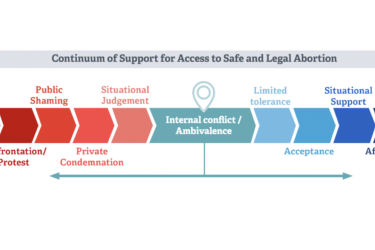
As the editors of the prestigious medical journal anticipated, the newly published Canadian study is causing a stir.
The paper, which appears in JAMA Pediatrics links higher fluoride consumption by pregnant women with lower intelligence scores in their offspring. The findings represent the latest foray by researchers into fluoride safety, an emotionally fraught topic in both the U.S. and Canada.
The authors of the paper studied fluoride exposure for 512 mother-child pairs, about 40% of whom lived in fluoridated communities across six Canadian cities. They calculated fluoride levels in local water supplies and fluoride concentrations in the pregnant women’s’ urine.
In 400 pairs, they also examined the women’s’ self-reported patterns of tap water and tea consumption during pregnancy.
After the children were born, when they were 3 to 4 years old, their intelligence was tested.
The researchers concluded that boys born to mothers with the highest concentrations of urinary fluoride had IQs that were approximately three points lower than the sons of mothers with the lowest urinary fluoride levels. They found that the association was not significant in girls.
But they also determined that a one milligram increase in reported daily fluoride consumption was associated with a 3.7 point decrease in IQ across boys and girls.
“These findings indicate the possible need to reduce fluoride intake during pregnancy,” the researchers concluded.
Some previous studies, including a number from China have described inverse relationships between fluoride exposure and intelligence in children, but their quality has been widely challenged. The new study was subjected to additional editorial scrutiny before its publication.
“The decision to publish this article was not easy,” acknowledged journal editor Dimitri A. Christakis in an editorial note that accompanied the paper. [Read the steps Tara Haelle took when reporting on this study.]
“This study is neither the first, nor will it be the last, to test the association between prenatal fluoride exposure and cognitive development,” he predicted. “We hope that purveyors and consumers of these findings are mindful of that as the implications of this study are debated in the public arena.”
In an editorial that ran concurrently with the findings, David Bellinger of Boston Children’s Hospital wrote that “the hypothesis that fluoride is a neurodevelopmental toxicant must now be given serious consideration.”
But for seven decades, U.S. health officials have staunchly defended their efforts to promote oral health by supplementing naturally occurring fluoride in community water supplies. Currently, about 75% of Americans have access to what is considered optimally fluoridated water. The Centers for Disease Control and Prevention, which has hailed community water fluoridation as one of the of the 10 top health achievements of the 20th century, credits the program with reducing tooth decay by about 25 percent.
Yet such efforts have also endured years of attacks by opponents who have challenged the safety and even the morality of community water fluoridation. A similar debate is ongoing in Canada.
The new findings have received a measured response from a number of professional organizations. While citing the need for continuing research, the American Academy of Pediatrics (AAP) has voiced its continued support for community water fluoridation.
“This article is intriguing but the results should be interpreted carefully,” observed Denver pediatrician and professor Patricia Braun, chair of the AAP Section on Oral Health Executive Committee in an email.
“There are so many things that impact a child’s IQ both perinatally and during the child’s life which were not taken into account for (adjusted for) in this study. While the results suggest an association, there is no evidence of causality,” Braun wrote. “It will be important to see if these changes persist into childhood.”
While Braun called the study “an important addition to our body of knowledge,” she said that the AAP “recommends pediatricians continue to counsel parents and pregnant women on the consumption of water with appropriate and safe levels of fluoride.”
“We recommend pregnant women and families drinking well water get their water tested annually for overall water quality,” she wrote.
The American Dental Association (ADA) issued a statement asserting that the organization “remains committed to fluoridation of public water supplies as the single most effective public health measure to prevent tooth decay.”
“I still stand by the weight of the best available evidence, from 70 years of study, that community water fluoridation is safe and effective,” added dentist and ADA spokeswoman Brittany Seymour in coverage of the study for the Washington Post.
“If we’re able to replicate findings and continue to see outcomes, that would compel us to revisit our recommendation. We’re just not there yet.”
The Centers for Disease Control and Prevention has declined to discuss the new study, saying it does not comment on outside research, Shira Feder and Tracy Connor reported in a story for the Daily Beast.
“The American College of Obstetricians and Gynecologists, which recommends that pregnant women use fluoridated toothpaste and mouth rinses, isn’t making any changes for now,” they wrote.
“We wouldn’t change our guidelines without undertaking our thorough clinical-review process,” ACOG spokeswoman Kate Connor told them.
In the same story, Sophia Lubin, a Brooklyn obstetrician-gynecologist, acknowledged that the study left her “with a lot more questions than answers.”
“As an obstetrician, you always have to think about two people — the mother and the baby,” Lubin said. “And oral health is important for mothers.”
“She anticipates telling women that if they are truly concerned, they can switch to bottled water during pregnancy. But she doesn’t think, at this point, that she will tell patients they should not drink from the tap,” Feder and Connor wrote.
“One part of the study that struck her was how much fluoride is in black tea, which soaks it up from soil,” they reported.
“She said she is more likely to tell patients to cut back on tea than on water, since it’s important they stay hydrated.”
Related
Covering a controversial study: How to dig deep on a deadline










